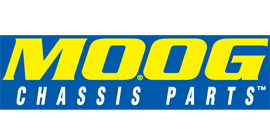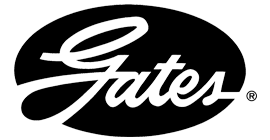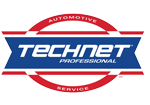
AUTONET TV
Archive for August 2021What's in a Number? (What Tire Numbers Mean)Posted August 29, 2021 7:28 AMYou've probably never paid much attention to the writing on the sides of your tires, but they contain a wealth of information. There's a long combination of letters and numbers that can tell you a whole lot about what tires your vehicle was designed to be riding on. Let's check out this example found on an SUV: P245/70R17 108T. The first letter, P, means it's intended for passenger vehicles. If there's no letter, it means it's a metric tire. If there's an LT at the beginning or end that means a tire designed for light trucks. Moving on to our example, the 245 shows how wide the tire is in millimeters from sidewall to sidewall. The number that follows in our example, 70, means the height of the tire is 70% of its width. The letter after that in our example, R, describes the type of tire (on this vehicle, radial). Following that is the diameter in inches, in our SUV example, 17 inches. How much load the tires' sidewalls are designed to take is what that next number is all about (108 in our example). The higher the load index, the more weight the sidewalls can take. And the last letter is the speed rating of the tire, in our example, T. The further along in the alphabet that letter is, the higher its speed rating. So now you know what those letters and numbers mean. But why are they important? When you are getting ready to replace those tires, those numbers are telling you what the original equipment was when your vehicle was new. Sticking with the same rated tires is always a good idea. If you don't know what you're doing, trying different sized tires and wheels can cause real issues when it comes to performance and safety, considering all the computerized systems now found on vehicles. When in doubt, consult your service advisor when it comes to buying new tires. He or she knows what those tire numbers and letters mean… and a whole lot more. TJ's Auto Center Inc. A "Mounting" Problem (Motor Mounts)Posted August 22, 2021 9:04 AMYou know how heavy your engine and transmission are, so you can imagine how tough the parts that hold them onto your vehicle's sub-frame must be. Not only must they support the weight, they also have to isolate vibrations and noise from the passenger cabin. Pretty tall order, wouldn't you say? The parts that face that task daily are called the motor mounts, or engine mounts. They are usually made of rubber with steel brackets. Others contain a liquid for vibration and sound isolation. Most vehicles have three or four motor mounts, and while rubber or hydraulic liquids do a good job of damping the vibrations from the engine, they also have their limitations. The problem with rubber is that it gets old and brittle. Plus, if there's an oil leak anywhere in your engine and oil gets on the rubber motor mounts, rubber will deteriorate even more quickly. As for the liquid motor mounts, they can develop leaks and stop working. Here are signs a motor mount is going bad. You may hear a loud clunking or banging sound under the hood. That means the weight of the engine is shifting around enough to bang against other metal parts. You may feel bad vibrations, and the engine may feel like it's moving around in a strange way. When things get to that point, your vehicle can be damaged from that heavy engine knocking against things, and its time to replace one or more motor mounts. Schedule a visit to your vehicle service facility. There, a technician will assess your motor mounts; if one bad one is found, it's not unusual that others are likely to fail soon and should be replaced before they do. Because all vehicles are configured differently, some motor mounts are easily replaced. But others can be much trickier, take a lot longer and therefore are more expensive to replace. It's important for your engine's health to make sure motor mounts are sound and solid. You will maintain that quiet, vibration-free ride and could save your engine and transmission from major wear and tear. TJ's Auto Center Inc. Don't Do It Yourself (Perils of DIY Vehicle Repair)Posted August 15, 2021 10:02 AMYour vehicle is a complicated machine, and yes, it would be nice if you could take care of all of its problems yourself. There was a time when vehicles were simpler and it wasn't too hard for a weekend mechanic to replace brakes, adjust a carburetor or perform a tune-up. But vehicles are far more complicated these days, with traction and stability control, anti-lock brakes, air bags and fuel injection just a small sample of the new technologies. Like a lot of things these days, technology changes in leaps and bounds. Anyone who repairs vehicles has to stay up on the latest computers, sensors, suspensions, steering, electronics, hydraulics and more. Many power steering, braking and heating and air conditioning systems that used to be mechanical are now being replaced by electronic systems. Computers are an integral part of much of the latest automotive technology, something you didn't see a lot of until as recently as the 1990s. Today's most highly-trained technicians are able to keep up with how to perform the latest repairs and service by continuing education about their craft. When once an auto repairman could do fine with a lift and a good set of tools, now specialized electronic analysis equipment and tools are must-haves when it comes to vehicle repair. Because of how fast technology changes, access to the latest repair databases and manuals is also important. Manufacturers require certain service procedures to be performed precisely, and any other way can leave a vehicle compromised when it comes to performance and safety. Your vehicle is capable of traveling at high speeds on challenging surfaces with ever-increasing traffic issues and unpredictable obstacles. You need your vehicle to be working up to its engineered potential. That's why you should leave repairs and service to professionals. They work on vehicles every day, and years of experience with hundreds of repairs equip them to deal with the unexpected as well as the routine. When you develop a trusting relationship with a reputable service facility, you can have confidence that the maintenance, service and repairs are being done by people who know what they're doing. Your safety and your vehicle's performance and reliability are well worth it. TJ's Auto Center Inc. Conventional or Synthetic? (Switching to Synthetic Oil)Posted August 8, 2021 10:34 AMIf you keep up on technology trends, then you may be intrigued about synthetic motor oil. It was introduced in the 1960s when Mobil came up with it. Mobil's oil was different from conventional motor oil because it was first broken down to its basic molecules. Then, Mobil removed additional impurities from crude oil and "tailored them to the demands of modern engines." Synthetic oil is becoming more popular now because of its advantages over conventional oil. It's more resistant to sludge forming in an engine. It is more efficient and protects engines better under temperature extremes. Because it allows drivers to go longer between oil changes, many feel it's more convenient. The downside is that synthetic oil is more expensive, but because it doesn't need changing as often, the cost can be pretty comparable in the long run. Those who drive high performance vehicles (think Audi, BMW, Mercedes) are already using synthetic oil if they're following their manufacturer's guidelines. Other manufacturers recommend a synthetic blend. So for those who are using conventional oil, you may want to consult your service advisor for some recommendations if you want to switch to synthetic. If you're the type who always waits until the last-minute or doesn't ever get in quite in time for the recommended oil change interval, the longer gap required between changes with synthetic oil may appeal to you. In some cases, you can go up to 15,000 miles/24,000 km between changes. If you drive in a very cold climate, synthetic oil can flow more easily at startup and may offer quicker engine protection. On the other hand, in hot climates, synthetic oil can resist heat breakdown better. Or you may be one of those drivers who have been getting along fine with conventional oil changes. Millions do. Just remember that changing your oil is considered the most important maintenance you can do on your vehicle, so make sure it's done at the right time and with the oil that best suits your driving needs. TJ's Auto Center Inc. What Is an EGR Valve? (EGR Valve Service)Posted August 1, 2021 10:27 AMIf you've ever felt your vehicle hesitate, go, then hesitate again, you might think there's something wrong with the transmission. After all, it's not moving smoothly down the road. But there are plenty of malfunctions that can cause those symptoms, one of them being something you may have never heard of: the EGR valve. EGR stands for Exhaust Gas Recirculation. It's a system that channels small amounts of exhaust back into the engine to cool down the cylinders and reduce polluting gases. Those include nitrogen oxides that can cause smog. The EGR valve regulates how much of the vehicle's exhaust gas is recirculated. After years and long distances traveled, that valve can get clogged or fail. Sometimes the EGR valve can stick open. When the EGR valve isn't working properly, your vehicle can start releasing those nitrogen oxides and pollute the air. The symptoms of a malfunctioning EGR valve include:
Depending on its condition, the EGR valve can be cleaned or it may need to be replaced. Consult with your service advisor to see what options are recommended to you. The EGR system is part of your vehicle's pollution and emissions control equipment. If you care about keeping our planet's atmosphere clean, you'll want to make sure it's doing its job—for everyone's benefit. TJ's Auto Center Inc. | ||
SearchArchiveJune 2010 (71)July 2010 (4) August 2010 (4) September 2010 (4) October 2010 (4) November 2010 (4) December 2010 (4) January 2011 (4) February 2011 (4) March 2011 (4) April 2011 (5) May 2011 (5) June 2011 (4) July 2011 (4) August 2011 (5) September 2011 (4) October 2011 (4) November 2011 (5) December 2011 (4) January 2012 (5) February 2012 (2) March 2012 (5) April 2012 (4) May 2012 (5) June 2012 (4) July 2012 (5) August 2012 (4) September 2012 (4) November 2012 (1) December 2012 (2) March 2013 (1) April 2013 (3) May 2013 (2) October 2013 (5) November 2013 (2) January 2014 (2) February 2014 (3) March 2014 (1) July 2014 (4) August 2014 (7) September 2014 (4) October 2014 (5) November 2014 (4) December 2014 (5) January 2015 (4) February 2015 (4) March 2015 (4) April 2015 (4) May 2015 (3) June 2015 (5) July 2015 (2) September 2015 (2) October 2015 (4) November 2015 (5) December 2015 (2) February 2016 (2) March 2016 (4) April 2016 (4) May 2016 (5) June 2016 (4) July 2016 (5) August 2016 (4) September 2016 (4) October 2016 (5) November 2016 (4) December 2016 (4) January 2017 (5) February 2017 (4) March 2017 (4) April 2017 (3) May 2017 (5) June 2017 (4) July 2017 (5) August 2017 (4) September 2017 (3) October 2017 (5) November 2017 (4) December 2017 (3) January 2018 (5) February 2018 (4) March 2018 (4) April 2018 (4) May 2018 (4) June 2018 (4) July 2018 (5) August 2018 (4) September 2018 (5) October 2018 (3) March 2019 (4) May 2019 (2) June 2019 (5) July 2019 (2) August 2019 (2) September 2019 (4) October 2019 (5) November 2019 (4) December 2019 (5) January 2020 (5) February 2020 (4) March 2020 (5) April 2020 (1) May 2020 (2) June 2020 (1) July 2020 (1) August 2020 (5) September 2020 (4) October 2020 (4) November 2020 (5) December 2020 (4) January 2021 (6) February 2021 (4) March 2021 (4) April 2021 (4) May 2021 (5) June 2021 (4) July 2021 (4) August 2021 (5) September 2021 (4) October 2021 (5) November 2021 (4) December 2021 (4) January 2022 (6) February 2022 (4) March 2022 (4) April 2022 (4) May 2022 (5) June 2022 (4) July 2022 (5) September 2022 (4) October 2022 (5) November 2022 (4) December 2022 (4) January 2023 (5) February 2023 (4) March 2023 (4) April 2023 (5) May 2023 (4) June 2023 (4) July 2023 (5) August 2023 (4) September 2023 (3) October 2023 (2) January 2024 (1) February 2024 (4) | CategoriesAir Conditioning (17)Alignment (18)Alternator (6)Auto Safety (6)Automotive News (10)Battery (20)Brake Service (4)Brakes (22)Cabin Air Filter (9)Check Engine Light (7)Cooling System (21)Customer Detective Work (1)Dashboard (3)Diagnostics (5)Diesel Maintenance (1)Differential Service (4)Drive Train (10)Emergency Items (1)Engine Air Filter (3)Exhaust (13)Fluids (17)Fuel Economy (10)Fuel Pump (1)Fuel Saving Tip: Slow Down (2)Fuel System (49)Headlamps (7)Inspection (11)Keys to a long lasting vehicle (4)Maintenance (62)Monitoring System (3)Oil Change (7)Older Vehicles (5)Parts (8)PCV Valve (2)Safe Driving (1)Safety (6)Serpentine Belt (7)Service Intervals (10)Service Standards (14)Shocks & Struts (9)Shocks and Struts (2)Spark Plugs (2)Steering (15)Suspension (3)Timing Belt (6)Tire Pressure Monitoring System (1)Tire Rotation and Balancing (4)Tires (10)Tires and Wheels (44)TPMS (3)Transfer Case Service (1)Transmission (11)Trip Inspection (4)Warranty (2)Water Pump (1)What Customers Should Know (81)Wheel Bearings (2)Windshield Wipers (9)Winter Prep (8)Winter Tires (1) | |

OUR REVIEWS


Howard L.The business always does a great job and takes care of him. They are very polite.












